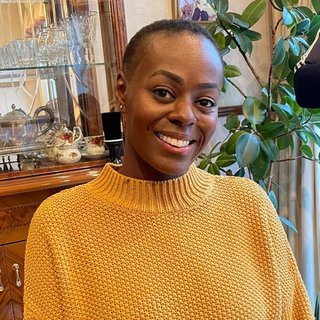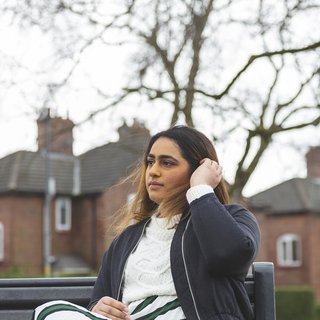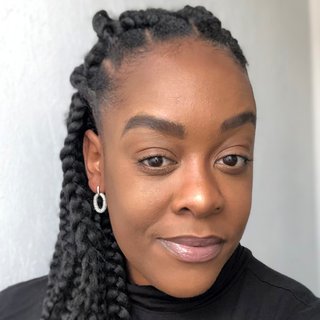Listen to us, believe us
Mphango was diagnosed with acute myeloid leukaemia (AML) at the age of 24. She was seen by multiple medical professionals before she received her diagnosis. Two years on, she reflects on what happened and what needs to change.
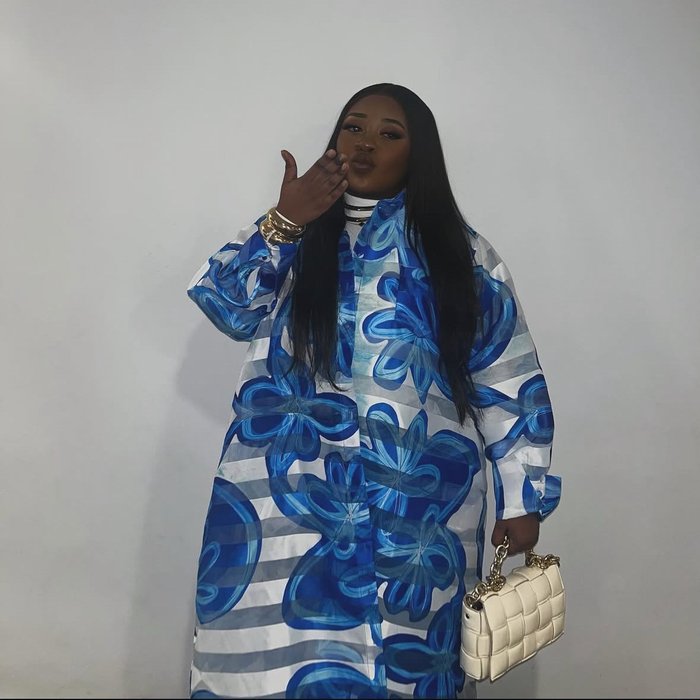
Before you read on:
This story contains medical imagery which some people may find distressing. It is included to make an important point about Mphango's experience.
My name is Mphango and I’m a young, Black woman diagnosed with acute myeloid leukaemia. Those three things – being young, being Black, and being female – have definitely affected my experience of blood cancer and I want to talk about it. To help other women like me.
How it all started
One of my eyes didn’t look right and it was getting worse. I was in a lot of pain – my whole face hurt and I could see bruising.
I’d been to the GP. I’d been to the optician. They said there was nothing seriously wrong. So I went to A&E. The doctor said it was a stye. I was begging him to let me see an eye specialist but he said he couldn’t see any bruising and to prove it he showed me pictures he’d googled. The pictures were all of white people.
I couldn’t believe it, but I’d been in A&E for 12 hours and I just didn’t have the energy to fight. I had no blood test, no scan. Not even painkillers, because when I asked for some, the doctor looked at me like I was in there every week trying to score drugs.
I was in the process of moving to London, and when I got there I went to A&E again. At this hospital, they took one look and asked why I hadn’t come sooner. Which was annoying, but not their fault.
The problem with my eye was in fact a tumour, a rare complication of AML.
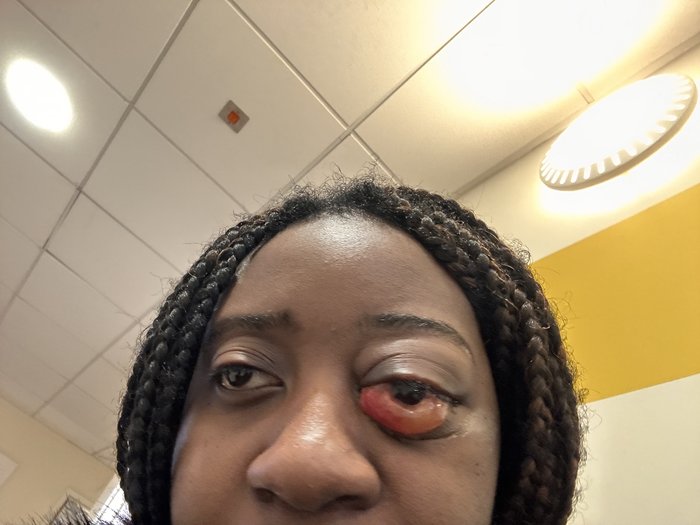
My advice to healthcare professionals
Please, listen to Black women and believe us. Take us seriously.
If somebody is coming in multiple times, then do something. Give them a blood test, even if it’s just to reassure their minds.
A beast of a disease
Once I got my AML diagnosis, I had stellar treatment. I was very lucky that my blast numbers were still reasonable, so I just had time to have fertility treatment and harvest 14 eggs.
I was treated with chemotherapy and a drug called midostaurin. My eye was treated with radiotherapy.
Chemo was hard, but nothing compared to what happened when I got a terrible infection in my PICC line. I ended up in intensive care on a ventilator. When I came off the vent, I was so weak. I couldn't walk. I had to re-learn how to swallow. I wasn’t independent for a very long time, which I found so hard. Prior to that I was a gym girl – I was really, really strong.
I was also made redundant during treatment, which didn’t help the situation at all. I was such a busy person prior to that, and not being busy was incredibly difficult to deal with. It really impacted me mentally and spiritually too, because I'm Christian, and me and God were not in a good place. Not that I stopped believing, I just felt what on Earth are you doing? There are people out there that are awful human beings. But it's me. It's me that you've taken everything away from.
It was such a difficult and confusing time, and it strips away any kind of agency you have. Any right to privacy, any right to make choices. Yes, to a certain extent I had a choice – I didn't have to take the treatment if I didn't want to. However, in my mind, it wasn’t a choice. It was either life or death, even if I didn't know what the outcome would be. And if you’re Black, no one can really say.
After the chemo was finished, I went on to maintenance therapy with a new drug. That was lucky, because it’s not standard treatment. The maintenance treatment has been hard too – it’s made me feel very sick. But I have been able to get on with things.
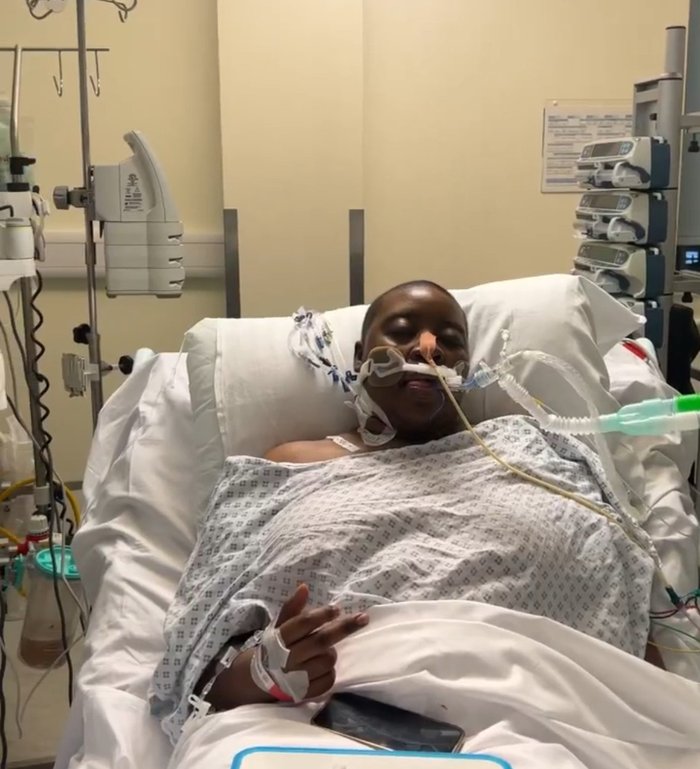
Feeling isolated
At my age, none of my friends were dealing with this kind of stuff. I didn’t see anyone on social media that looked like me. It was a lonely path.
Other people had good intentions, but the miseducation around chemotherapy is horrendous. All these people asking, what kind of holistic medicine can you take? What about a water diet, an alkaline diet? Grappling with other people’s opinions on your treatment while you’re going through it is not helpful!
At the same time, I wouldn’t be here without other people. Oh my goodness, my tribe, they were my everything. When I was down, they lifted me up. When I couldn’t pray for myself, they were praying.
My advice to other young Black women with blood cancer
You're going to hear a lot of people telling you their own opinions, their own thoughts. It is going to be very overwhelming, but you have to remember that this is your diagnosis, your body, your life.
You need your doctors and nurses. But if you feel like there's something going on with your body, you speak up and you talk about it. Don’t let anyone push you down.
But you don’t have to do this alone. There is a community out there for you.
The light of gratitude
As I progressed through my treatment, I started to see a lot of blessings. I read a lot of books that put suffering into perspective for me – I mean suffering as a whole, in the world. People take lessons from it. They learn gratitude.
At first, I was still quite angry. But I found I could be grateful for very small things. For waking up in the morning and being at home. For the food I have. And then one day I realised, I'm actually living the life that I wanted. I'm living in London. I'm getting to work with Black women, to help them. And be my own boss, my own entrepreneur.
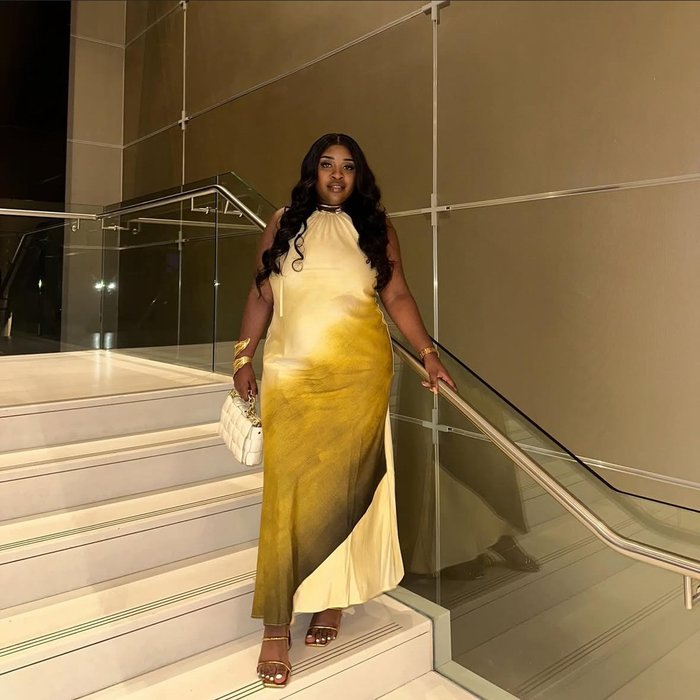
One of the lucky ones
I now have no evidence of disease. If I relapse, the next line of treatment would be a stem cell transplant. But it was made clear from the beginning that a transplant will be very difficult for me as a Black woman with no siblings. My chances of finding a matched donor are low – the statistics are diabolical. That’s something else that I live with, that’s really impacted me. It’s a state of emergency for people of colour. That’s why it’s so important to get people on the stem cell registers. But also, to find new treatments that work just as well.
But, ultimately, I feel lucky that I actually lived. A lot of Black women with cancer don't live to tell their stories so I’m going to tell mine as often as I can.
Mphango works as a Project Support Officer for Black Women Rising (BWR), an organisation that provides vital support, information, and practical advice to women of colour who have been diagnosed with cancer at any stage of their journey. She also serves as an Inclusive Research and Education Practices Coordinator at the Florence Nightingale Faculty of Nursing, Midwifery & Palliative Care at King’s College London, where she is working to increase diversity among researchers, research participants, and patient and public involvement (PPI) members across the faculty.
In addition, Mphango sits on the Voice Board for Young Lives vs Cancer, helping to ensure that the voices and experiences of young people affected by cancer are at the heart of the charity’s work.
To find out more about saving lives by joining a stem cell register, visit ACLT or Anthony Nolan.

